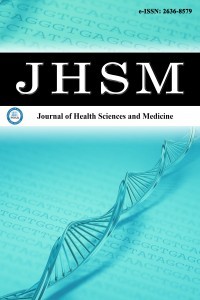1.
Kessler RC, Berglund P, Demler O, et al. Lifetime prevalence and age-of-onset distributions of DSM-IV disorders in the National Comorbidity Survey Replication. <em>Arch Gen Psychiatry.</em> 2005; 62(6):593-602.
2.
Manicavasagar V, Marnane C, Pini S, et al. Adult separation anxiety disorder: a disorder comes of age. <em>Curr Psyc Rep</em>. 2020; 12(4):290-297.
3.
American Psychiatric Association. <em>Diagnostic and Statistical Manual of Mental Disorders</em>. 5<sup>th</sup> ed. Washington: American Psychiatric Publishing. 2013.
4.
Rachman S, De Silva P. Obsessive-Compulsive Disorder: The Facts, 4<sup>th</sup> ed. New York: Oxford University Press. 2009.
5.
Porgalı-Zayman E. DSM-5’te obsesif kompulsif bozukluk. <em>Çukurova Üni Tıp Fak Derg</em>. 2016;41(2):360-362.
6.
Abramowitz JS, Wheaton MG, Storch EA. The status of hoarding as a symptom of obsessive-compulsive disorder. <em>Behav Res Ther.</em> 2008;46(9):1026-1033.
7.
Doron G, Derby D, Szepsenwol O, Talmor D. Tainted love: Exploring relationship-centered obsessive compulsive symptoms in two non-clinical cohorts. <em>J Obsessive Compuls Relat Disord</em>. 2012;1(1):16-24.
8.
Doron G, Derby D, Szepsenwol O, Talmor D. Flaws and all: exploring partner focused obsessive-compulsive symptoms. <em>J Obsessive Compuls Relat Disord</em>. 2012b;1(4):234-243.
9.
Doron G, Szepsenwol O. Partner-focused obsessions and self-esteem: an experimental investigation. <em>J Behavior Therapy Exper Psyc</em>. 2015;49(Pt b):173-179.
10.
Doron G, Derby D. Assessment and treatment of relationship-related OCD symptoms (ROCD): a modular approach. İçinde: Abramowitz JS, McKay D, Storch EA, eds. The Wiley Handbook of Obsessive Compulsive Disorders Hoboken: Wiley- Blackwell. 2017.
11.
Derby D, Doron G, Mizrahi M, Szepsenwol O. Right or flawed: relationship obsessions and sexual satisfaction. <em>J Sex Med. </em>2014a;11(9):2218-2224.
12.
Çelik H, Kocabıyık OO. Genç yetişkinlerin saldırganlık ifade biçimlerinin cinsiyet ve bilişsel duygu düzenleme tarzları bağlamında incelenmesi. <em>Trakya Üni Eğitim Fak Derg</em>. 2014;4(1): 139-155.
13.
Garnefski N, Kraaij V, Spinhoven P. Negative life events, cognitive emotion regulation and emotional problems. <em>Pers Individ Dif.</em> 2001;30(8):1311-1327.
14.
Lazarus RS. Stress and emotion: a new synthesis. Springer Publishing Company. 2006.
15.
Gross JJ, John OP. Individual differences in two emotion regulation processes: implications for affect, relationships, and well-being. <em>J Pers Soc Psychol. </em>2003;85(2):348.
16.
Wang Y, Kong F. The role of emotional intelligence in the impact of mindfulness on life satisfaction and mental distress. <em>Social Indicators Res</em>. 2014;116(3):843-852.
17.
Bao X, Xue S, Kong F. Dispositional mindfulness and perceived stress: the role of emotional intelligence. <em>Pers Individ Dif.</em> 2015; 78:48-52.
18.
Brown KW, Ryan RM. The benefits of being present: mindfulness and its role in psychological well-being. <em>J Person Social Psyc</em>. 2003;84(4):822
19.
Brown KW, Ryan RM, Creswell JD. Mindfulness: theoretical foundations and evidence for its salutary effects. <em>Psychol Inquiry</em>. 2007;18(4):211-237.
20.
Ryan RM, Deci EL. Self-determination theory and the facilitation of intrinsic motivation, social development, and well-being. <em>Am Psychol.</em> 2000;55(1):68-78.
21.
Baer RA, Smith GT, Lykins E, et al. Construct validity of the Five Facet Mindfulness Questionnaire in meditating and nonmeditating samples. <em>Assessment</em>. 2008;15(3):329-342.
22.
Howell AJ, Digdon NL, Buro K, Sheptycki AR. Relations among mindfulness, well-being, and sleep. <em>Pers Individ Dif.</em> 2008;45(8): 773-777.
23.
Falkenström F. Studying mindfulness in experienced meditators: a quasi-experimental approach. <em>Pers Individ Dif.</em> 2010;48(3);305-310.
24.
Karasar N. Bilimsel araştırma yöntemi. Ankara: Nobel Yayıncılık. 2012.
25.
Trak E, İnözü M. Yeni bir obsesif-kompulsif semptom içeriği: Romantik İlişki Obsesyon ve Kompulsiyonları Ölçeği ile Partnere İlişkin Obsesif-Kompulsif Belirti Ölçeği’nin Türkçe Formlarının Psikometrik Özellikleri.<em> Klinik Psikiyatri Derg. </em>2017;20(3):171-185.
26.
Garnefski N, Kraaij V. Relationships between cognitive emotion regulation strategies and depressive symptoms: a comparative study of five specific samples.<em>Pers Individ Dif.</em> 2006;40(8):1659-1669.
27.
Onat O, Otrar M. Bilişsel Duygu Düzenleme Ölçeğinin Türkçe'ye uyarlanması: geçerlik ve güvenirlik çalışmaları. <em>Marmara Üni Atatürk Eğitim Fak Eğitim Bil Derg</em>. 2013;31(31):123-143.
28.
Manicavasagar V, Silove D, Wagner R, Drobny J. A self-report questionnaire for measuring separation anxiety in adulthood. <em>Compr Psychiatry.</em> 2003;44(2):146-153.
29.
Diriöz M, Alkin T, Yemez B, Onur E, Eminağaoğlu PN. Ayrılma Anksiyetesi Belirti Envanteri Ile Yetişkin Ayrılma Anksiyetesi Anketinin Türkçe versiyonunun geçerlik ve güvenirliği. <em>Türk Psikiyatri Derg</em>. 2012;23(2):108-116.
30.
Özyeşil Z, Arslan C, Kesici Ş, Deniz ME. Bilinçli Farkındalık Ölçeği’ni Türkçe’ye uyarlama çalışması. <em>Eğitim ve Bilim</em>. 2011; 36(160):224-235.
31.
George D, Mallery P. SPSS for Windows step by step: a simple guide and reference. 11.0 Update (4<sup>th</sup> ed.). Boston: Allyn & Bacon. 2003.
32.
Karahisar İN. Üniversite öğrencilerinde erken dönem uyumsuz şemaların ve yetişkin ayrılık anksiyetesinin romantik ilişki odaklı obsesif kompulsif belirtilerle ilişkisinin incelenmesi. Master’s thesis. İstanbul Kent Üniversitesi Lisansüstü Eğitim Enstitüsü. 2021.
33.
Doron G, Kyrios M, Mikulincer M, Moulding R, Nedeljkovic M. Adult attachment insecurities are related to obsessive compulsive phenomena. <em>J Social Clinical Psychol</em>. 2009;28(8):1022-1049.
34.
Doron G, Derby DS, Szepsenwol O. Relationship obsessive compulsive disorder (ROCD): a conceptual framework. <em>J Obsessive Compuls Relat Disord</em>. 2014b;3:169-180.
35.
Anderson CA, Miller RS, Riger AL, Dill JC, Sedikides C. Behavioral and characterological attributional styles as predictors of depression and loneliness: review, refinement, and test. <em>J Personal Social Psychol</em>. 1994;66(3):549.
36.
Sullivan MJ, Bishop SR, Pivik J. The Pain Catastrophizing Scale: development and validation. <em>Psychological Assessment</em>. 1995; 7(4):524.
37.
Güven N, Ünal Z. Üniversite öğrencilerinin bilişsel duygu düzenleme stratejileri, romantik ilişkilerle ilgili akılcı olmayan inançları ve öz anlayışları arasındaki ilişkilerin incelenmesi. <em>Researcher</em>. 2020;8(2):148-173.
38.
Mısırlı M, Kaynak GK. Effects of relationship-centered obsessive compulsive symptoms and difficulty in emotion regulation on psychological well-being in young adults. <em>Psikiyatride Güncel Yaklaşımlar</em>. 2013;15(Supplement 1):298-306.
39.
Ayan BE. Erken dönem uyumsuz şemalar ile psikolojik iyi oluş arasındaki ilişkide bilişsel çarpıtmalar ve duygu düzenleme güçlüğünün aracı rolü. Uzmanlık tezi. İstanbul Medipol Üniversitesi. 2019.

